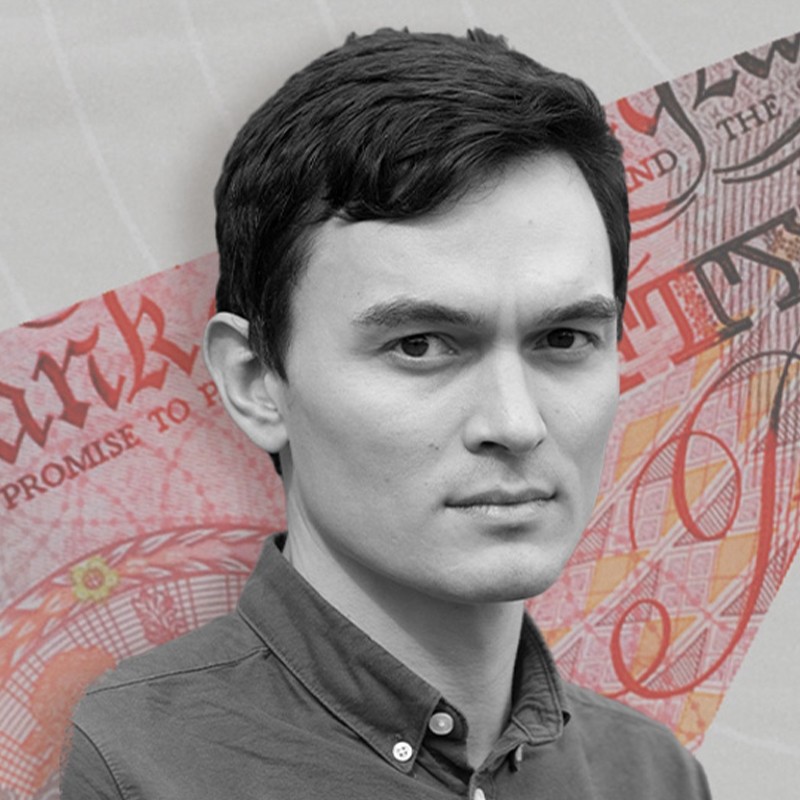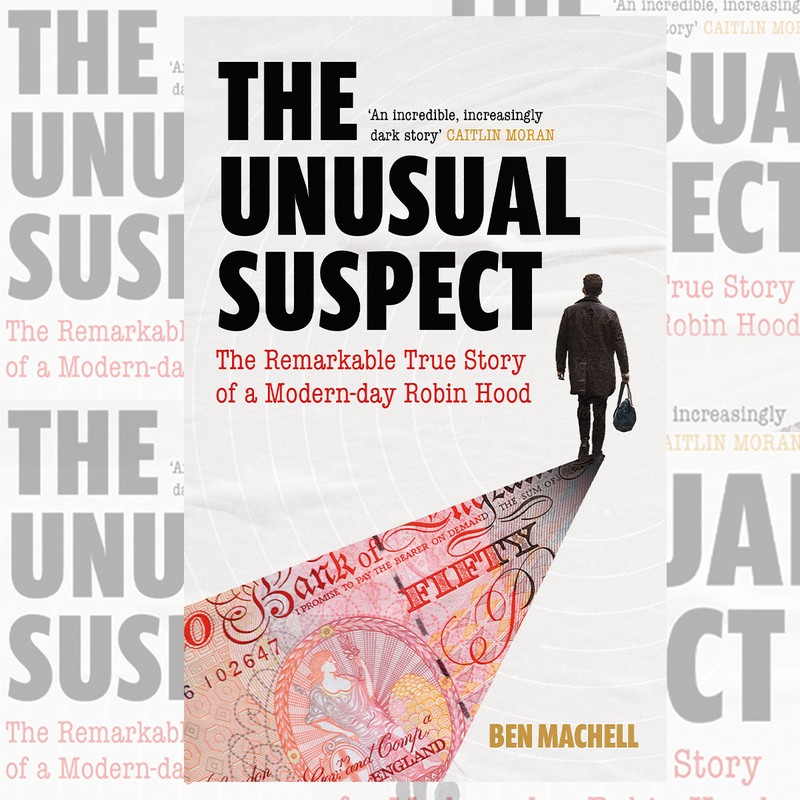The True Crime Story You Need To Read
Ben, can you introduce us to Stephen?
He’s a young man who, with varying degrees of success, robbed a series of banks between late 2007 and spring 2008, against the backdrop of the global financial crisis. His motivation was a deep concern about inequality and the looming climate crisis – that led to an obsession with becoming a Robin Hood character. He saw the planet as locked into a capitalist system of produce, consume, produce, consume, over and over again. That didn’t seem sustainable to him, so he wanted to steal from the rich in order to give to the poor. With no prior criminal expertise and with nobody else helping him, he started to steal from banks, beginning in Devon.
How does that go for him?
He has mixed results. He does get his hands on tens of thousands of pounds and does give some of it away to homeless people in the street. But his full plan was to steal enough money to eventually pivot and go legit. He had an idea to set up an NGO-type organisation that would bring together people who shared his beliefs about the financial and climate crises, and do something about them. Before he reached his funding target, he was arrested in Vermont, where he was treated as a high-risk inmate, and eventually spent seven years behind bars.
How did you find the story?
I was in one of those listless clicking and scrolling sessions I get into on a clear morning or afternoon. I was looking at local news stories and Stephen’s name popped up. There wasn’t much about him, only that he was a self-styled bank robber who was doing it in order give money to the poor. Just reading that, I needed to know more.
So you ended up writing a book?
Eventually. I wrote a feature first and just had people rushing up to me with loads of questions. Writing a book had never been an ambition of mine – honestly – but I had this story and I had run out of excuses not to try.
What do you think makes the story so compelling?
The easy answer is: because it happened. It’s true. But there’s more to it. For most people, there’s a sort of invisible seal that stops us from just walking into a bank with a fake gun and demanding money.
Those forces didn’t apply to Stephen. Why not?
When you’re a child, it’s down to your parents to show and tell you what reality is. But Stephen’s parents were challenging characters: his mother was schizophrenic; his father was almost certainly bipolar. It’s fairly obvious now that Stephen himself has Asperger’s syndrome, but this was never diagnosed, even while he was in prison. So his reality was probably very different to a lot of people’s, but all of those issues still do not make it a foregone conclusion that a socially isolated kid from Sidmouth in Devon is going to rob banks. From a starting point of his own unusual reality, Stephen still had to convince himself that that invisible seal didn’t really exist; that, with careful planning, robbing banks was not only possible, but that he was kind of duty bound to do it because of the financial and climate issues.
Perhaps predictably, his amateurishness leads to some memorable moments along the way…
There are some very funny moments. Not funny ha-ha, but funny misadventures. Stephen’s initial choice of disguise includes a wig that means people’s reaction is to laugh at him, rather than take his demands seriously. At one point, he tries to smuggle a blank firing pistol back from Istanbul. To get past security, he takes it apart, wraps the parts in tin foil and puts it in his bag – with some blank rounds. This is someone who is intelligent enough to have written interestingly about particle physics in his diaries at a young age, but at no point did he think airport security might have something to say about what he’d got in that bag.
There’s another time when he wants to get a real gun and decides to go to Birmingham. He gets on a train and goes to stay with a Greek guy he found on a sort of hippie sofa-surfer website. He asks this guy straight out if he knows where to get a gun. Obviously the bloke’s got no idea. Stephen ends up going to a pub and asking some Yardies, who drive him to the middle of nowhere and predictably end up robbing him.
Why do you think Stephen agreed to speak to you for the book?
I think he’d read the local news articles and seen himself portrayed as a kind of wacky student character. At this point, he had also spent seven years in prison and never really spoken about it. I don’t think he was looking to exonerate himself by talking to me because he was absolutely guilt laden about what he’d done. But there was this question of how a very quiet, unassuming and socially isolated young person could convince themselves that they need to take this really dramatic, dangerous action. Stephen was prepared to address that, even though what he’d done was still very painful and embarrassing to him. I was lucky that he wasn’t looking to put a spin on it.
Having spent time with him and written the book, how do you now feel about what he did?
He obviously did something that was completely wrong. You can’t go walking into banks or bookmakers in a balaclava with a combat knife and a replica pistol, and start threatening people. My view on that hasn’t changed. If anything, hearing about the traumas that he caused ordinary bank workers has made me even more judgmental about what he did.
But I have also had access to Stephen’s diaries and writings from a young age. One of the things that comes through is his absolute love for nature and the natural world, and his confusion and horror at the way in which humanity is corrupting them. So I can see he was very sincere and also, in a strange way, a very rational person. Also, I don’t want to say he was ahead of his time – like he’s a singer-songwriter who never got the acclaim they deserved – but he is a bit of a canary-in-a-coalmine figure. He was thinking about inequality, unsustainability and melting ice caps almost two decades ago. I think a lot of people now would agree that what was motivating him was right, but what he did about it was, of course, not right.
The Unusual Suspect: The Remarkable True Story of a Modern-Day Robin Hood by Ben Machell is published by Canongate. Buy it here and follow Ben on Twitter.
DISCLAIMER: We endeavour to always credit the correct original source of every image we use. If you think a credit may be incorrect, please contact us at [email protected].



